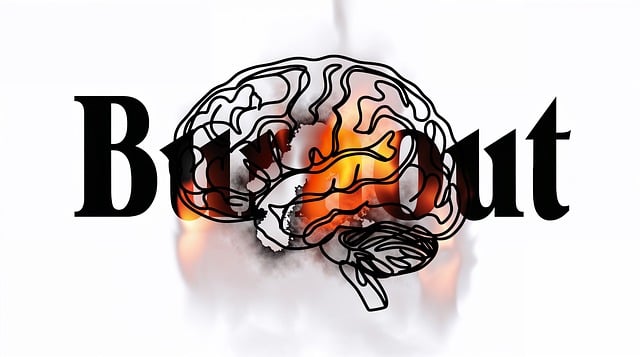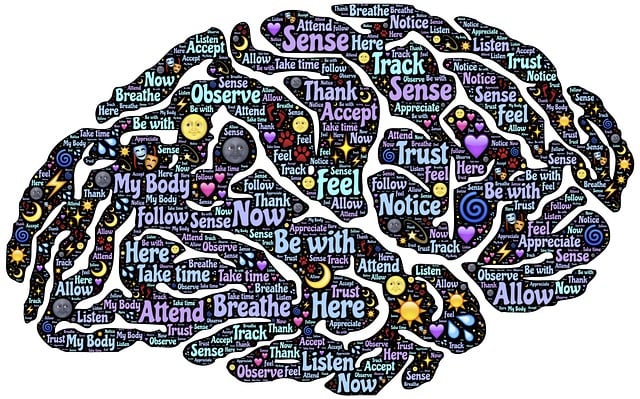Lafayette Grief Counseling Therapy provides immediate crisis support using evidence-based techniques while prioritizing cultural sensitivity and therapist self-care to prevent burnout. They identify distress signs, guide clients through emotional stages, and foster safe communication spaces for open expression. Combining structured and flexible approaches, therapists use active listening and coping mechanisms like breathing exercises and cognitive reframing to promote well-being. Post-crisis, they offer extended care with regular check-ins, stress reduction techniques, and resources to ensure successful grieving processes and long-term mental wellness.
“In moments of crisis, effective intervention can make a profound difference in an individual’s life. This comprehensive guide, tailored for Lafayette Grief Counseling professionals, delves into essential strategies to support clients navigating distress. From recognizing signs and stages of emotional turmoil to building trust through enhanced communication, this article equips therapists with practical tools.
We explore evidence-based techniques for crisis intervention sessions, emphasizing the importance of post-intervention care. By mastering these skills, Lafayette Grief Counseling professionals can provide compassionate, targeted support, fostering healing and resilience.”
- Understanding Crisis Intervention: An Overview for Lafayette Grief Counseling
- Identifying Signs and Stages of Distress in Clients
- Establishing Trust and Effective Communication Techniques
- Practical Strategies for Crisis Intervention Sessions
- Post-Intervention Support and Follow-up Care in Grief Counseling
Understanding Crisis Intervention: An Overview for Lafayette Grief Counseling

Crisis intervention is a critical aspect of mental healthcare, offering immediate support during times of intense distress or traumatic events. For Lafayette Grief Counseling Therapy professionals, understanding and implementing effective crisis intervention strategies are essential to help individuals navigate and overcome periods of profound grief, loss, or acute emotional crises. This approach involves providing structured yet flexible guidance tailored to the unique needs of each client.
Lafayette Grief Counseling therapists employ a range of evidence-based techniques to ensure cultural sensitivity in mental healthcare practice while fostering self-care practices among their clients. By recognizing the potential for burnout prevention and incorporating adaptive coping mechanisms, counselors enable individuals to develop resilience and enhance their ability to manage future crises. Crisis intervention services play a pivotal role in promoting emotional well-being, offering hope, and guiding clients towards healthier paths of recovery.
Identifying Signs and Stages of Distress in Clients

Recognizing signs of distress in clients is a critical aspect of crisis intervention, and Lafayette Grief Counseling Therapy has developed strategies to navigate this process effectively. Professionals in this field are trained to identify various indicators that may suggest an individual is struggling with their mental wellness. This includes both overt and subtle cues, such as changes in behavior, communication patterns, or physical health symptoms. For instance, a client might display heightened irritability, sleep disturbances, or significant weight fluctuations, which could be red flags for underlying emotional distress.
The stages of distress can vary among individuals, but they often follow a pattern. In the early stages, clients may show signs of agitation or withdrawal. As the situation progresses, more severe symptoms like panic attacks, suicidal ideation, or delusions might emerge. Understanding these stages enables therapists to provide appropriate support and guide clients towards developing coping skills for managing crises effectively. By enhancing emotional intelligence, professionals can create a safe space for individuals to express their feelings and work towards improving overall mental wellness.
Establishing Trust and Effective Communication Techniques

Establishing trust is a cornerstone of crisis intervention, and it sets the stage for effective communication. During moments of heightened distress, individuals often seek someone who listens without judgment, offering empathy and understanding. Lafayette Grief Counseling Therapy specialists are trained to create a safe space where clients feel comfortable sharing their experiences and emotions openly. This foundation of trust allows for honest dialogue, encouraging clients to express themselves freely, which is crucial in the early stages of managing crises.
Successful communication involves active listening, clarification, and reflection. Therapists use these techniques to gain insight into the individual’s perspective, assess their needs, and tailor interventions accordingly. By employing simple yet powerful tools like reflecting back feelings and restating concerns, mental health professionals can build rapport and ensure clients feel heard. This approach facilitates a collaborative process, empowering individuals to take ownership of their mental wellness journey while exploring effective stress reduction methods and developing resilience.
Practical Strategies for Crisis Intervention Sessions

In crisis intervention sessions, a structured yet flexible approach is key to effectively supporting individuals in distress. One practical strategy inspired by Lafayette Grief Counseling Therapy involves creating a safe and non-judgmental space where clients feel empowered to express their feelings openly. This process begins with active listening, where therapists demonstrate genuine interest and empathy, allowing the individual to feel heard and understood during an emotionally charged moment.
Additionally, Crisis Intervention Guidance often incorporates Emotional Well-being Promotion Techniques tailored to the client’s needs. These techniques may include breathing exercises for calming anxiety, cognitive reframing to challenge negative thinking patterns, or grounding strategies to help individuals reconnect with their present surroundings. For healthcare providers at risk of burnout, incorporating these practices not only benefits individual clients but also serves as essential Burnout Prevention Strategies, fostering resilience and enhancing overall care quality.
Post-Intervention Support and Follow-up Care in Grief Counseling

After an initial crisis intervention session, providing ongoing support and follow-up care is vital for effective grief counseling in Lafayette Grief Counseling Therapy. This extended phase helps individuals process their emotions, adapt to changes, and promote mental wellness. Counselors should offer regular check-ins, allowing clients to express their feelings, fears, or any challenges they face during the healing process.
Post-intervention support can include various stress reduction methods tailored to each individual’s needs. Communication strategies play a significant role here; counselors facilitate open dialogues, encouraging clients to share their experiences and providing guidance on coping mechanisms. Through these interactions, the focus shifts from immediate crisis management to long-term mental wellness, ensuring individuals have the tools and resources necessary to navigate their grief journey effectively.
In summary, effective crisis intervention in Lafayette Grief Counseling requires a comprehensive approach. By understanding the stages of distress, establishing trust through empathetic communication, and employing practical strategies tailored to individual needs, counselors can provide vital support during challenging times. Post-intervention follow-up ensures clients receive ongoing care, fostering resilience and healing. Adhering to these guidelines enhances the quality of Lafayette Grief Counseling services, enabling professionals to make a profound and lasting impact on those facing crises.














